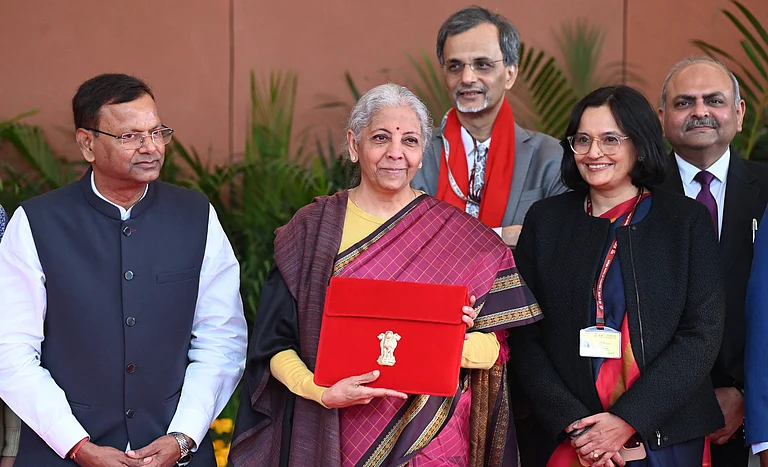Finance Minister Nirmala Sitharaman has pointed out job creation as a major global challenge due to economic uncertainties and rapid technological changes, constantly demanding new skillsets from youth to enter the job market. Speaking at a plenary lunch titled “How Should the World Bank Shape Its Future Strategic Direction and Help Clients Create More Jobs to Keep Pace with Evolving Megatrends,” Sitharaman called on the World Bank to work closely with nations to identify key skill sectors that align with employment opportunities.
Sitharaman highlighted that, while the World Bank has conducted studies on employment trends in areas like green jobs, the impact of artificial intelligence, and demographic changes, there’s a need for a more expansive approach. She urged the World Bank to lead a multi-sectoral analysis that not only examines sector-specific trends but also explores how global developments—such as geopolitical tensions—impact sectors like food production and exports. These global shifts, she explained, influence both job creation and loss, making it essential to analyze their collective effect on the job market.
A major component of her message was the necessity to consider alternative growth strategies beyond traditional manufacturing pathways. Sitharaman emphasized that with changing global dynamics, countries must explore new job-generating sectors, particularly those shaped by technological advancements. This approach would diversify economic growth and provide youth with more targeted opportunities to match emerging skill demands.
In her appeal to the World Bank, Sitharaman urged a collaborative effort with individual countries to pinpoint high-priority sectors that require specific skills, ensuring that workforce development aligns closely with job market needs. She advocated for strategies that emphasize skill-matching, labor retention, and overall employment generation, calling for an “outcome-oriented roadmap” with clear implementation strategies. This structured approach, she explained, would be crucial for countries aiming to adapt to megatrends that shape global economies.
During her time in Washington for the International Monetary Fund and World Bank annual meetings, Sitharaman also met with UK Chancellor of the Exchequer Rachel Reeves. The two discussed bilateral issues, with Sitharaman noting India’s anticipation of the upcoming Economic and Financial Dialogue set to take place in London in early 2024. She extended her well-wishes to Reeves for her upcoming budget presentation, underscoring the mutual economic ties between India and the United Kingdom.
In her address to the World Bank, Sitharaman called for proactive job creation strategies to address global changes. She emphasized the importance of collaboration, skill development, and sector analysis to help economies adapt to rapid technological advancements and economic challenges. This initiative aims to create stronger job markets for the future by making them more resilient and ensuring better job opportunities for future generations.
(This article is a reworked version of a PTI feed)



























